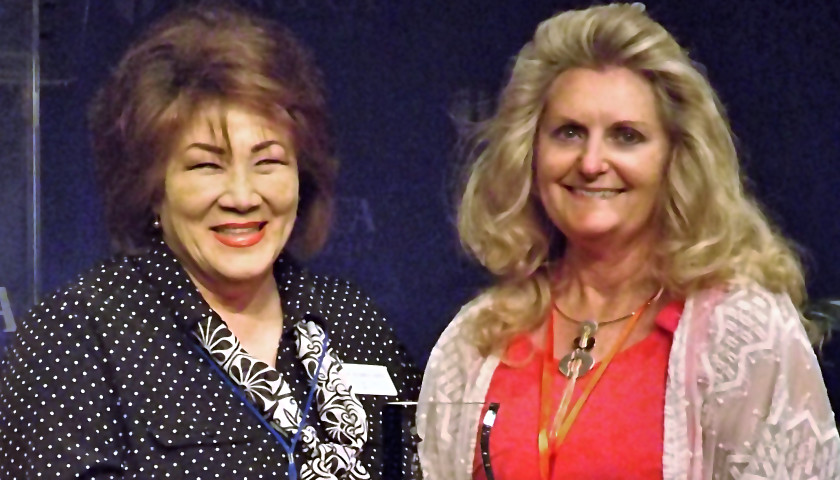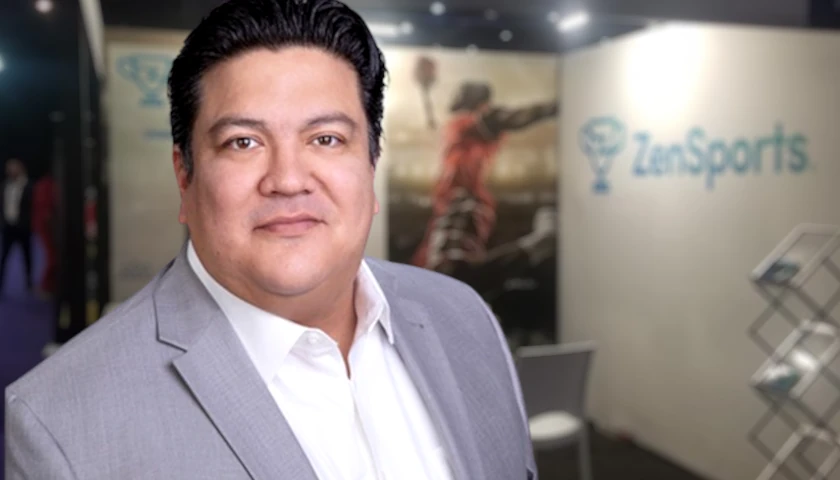Tennessee is a unique state, not only because we have the greatest citizens, but because of our geography. We border eight states. That can be an advantage and a disadvantage at times. When economic times are good, people want to relocate to our state. When economic times are difficult, it allows residents to move to a neighboring state and pursue more money in their chosen occupation. In education, we lose teachers to our border states on a regular basis.
Effective educator preparation remains critical to the future of education in Tennessee. When we lose teachers to other states it hurts Tennessee. We must work on teacher retention, and we continue to offer suggestions on the front end. We must also work to have a pipeline of high-quality educators who can move into our classrooms.
We identified perspective solutions in our article Looming Changes in Student Teaching. In that article, we also identified the existing teacher shortage—especially in special education, math, and science, and in schools serving students of color, low-income students, and English learners—will likely only increase, based on the predicted increase in the school-going population in the future. Colleges of Education must also address how to serve Career & Technical Education (CTE). Areas such as business, agriculture, health, automotive, and mechatronics programs need high-quality teachers. Also, we should consider how to better build the skills of paraprofessionals who work alongside teachers in classrooms in critical roles.
One of the innovative solutions we also discussed in our article is one that the Professional Educators of Tennessee have been working on with the Clarksville-Montgomery County School System (CMCSS). The district, in partnership with Austin Peay State University (APSU), has a cohort of 40 future teachers, who will earn a free bachelor’s degree in only three years, become dual certified in a critical shortage area plus special education, and participate in a multi-year residency experience while being a full-time employed paraprofessional, earning a salary, health insurance and retirement contributions.
In addition, the district plans to partner with Lipscomb University to offer up to 20 future teachers a licensure program that includes a one-year full-time paid residency and dual certification (K-5 and special education) at no cost to the teacher. Through this initiative, these future teachers will also earn a master’s degree in this partnership between Lipscomb and the district. This solution will likely be replicated by districts across the state.
Cathy Kolb, state president of Professional Educators of Tennessee, has long advocated and assists with the program to recruit and retain people into public education classrooms. “We believe it is a win-win for our district and our students,” Kolb advises. I would echo the words of CMCSS Chief Academic Officer Sean Impeartrice, “This is the future of teacher recruitment and preparation.” Kolb believes this effort will help “ensure that quality educators enter and remain in the profession in the future.”
This is also a critical part of the agenda that Tennessee Commissioner of Education Penny Schwinn wants to see expanded. Schwinn stated, “If you want to be an educator, you should be in Tennessee. We now have districts where you can get paid to become a teacher, graduate debt-free and be better prepared by spending multiple years in a residency under the mentorship of a great classroom leader,” stated Schwinn. “I look forward to replicating this innovative “Grow Your Own” model across the state.”
The Tennessee Department of Education will be hosting a “Grow Your Own” summit on Monday, November 4 for superintendents to share additional information and provide technical assistance for districts to build their own partnerships and models. We think it is imperative the state continue to support districts in recruiting and better preparing future teachers, and the “Grow Your Own” partnership is a great new model.
We cannot afford to lose great teacher candidates across our borders. This may also necessitate some changes to teacher licensure. The Commissioner is correct: If you want to be an educator, you should be in Tennessee.
—-
JC Bowman is the Executive Director of Professional Educators of Tennessee, a non-partisan teacher association headquartered in Nashville, Tennessee. Permission to reprint in whole or in part is hereby granted, provided that the author and the association are properly cited. For more information on this subject or any education issue please contact Professional Educators of Tennessee.






Ralph:
The beauty in what I write Ralph, is I have the guts to sign my own name, not under a fictitious name. And no matter how accurate your information is, or isn’t, nobody will take you seriously until you do. I also happen to live in the state.
So, here you go:
1) I do not like the NEA, perhaps any more than anyone else. I am not connected to them, in any form or fashion. In fact, they probably dislike me as much as anyone in the state of Tennessee. So, please feel free to discuss their agenda.
2) Social Justice is a banner in which people hang many hats. If you want to talk about giving anyone special rights, above others. I am out. If you want to talk about treating people fairly and respectfully, then I support that. If you want to see the world as it really is, and people as they really are, then talk about treating all people fairly. I was in Tennessee when it was a Democrat-controlled state, and watched conservatives and conservative ideas dismissed. That was unfair, so now that Republicans are in control of our state, I do not want to make the same mistake of treating people unfairly. No ideas are equal.
3) You really have no clue about educator prep. That is okay, you have talking points. But if you are not concerned about the quality and quantity of applicants entering the field of education, then you are misguided. The state already spends millions in Tennessee to recruit and retain educators, this may actually drive the costs down. Because you will have people who have gained experience and support as they transition from teacher candidate to classroom teacher. The way it works now about half the graduates who leave Colleges of Education never teach because they are turned off of the profession. That is a huge waste of taxpayer dollars. This should help alleviate that. One in Four, who do get hired also leave the classroom. So, again this helps address that issue.
4) The existing teacher shortage—especially in special education, math, and science, and in schools serving students of color, low-income students, and English learners—will likely only increase, based on the predicted increase in the school-going population in the future. Colleges of Education must also address how to serve Career & Technical Education (CTE). Areas such as business, agriculture, health, automotive, and mechatronics programs need high-quality teachers. Also, we should consider how to better build the skills of paraprofessionals who work alongside teachers in classrooms in critical roles. So, who do you propose we fill these positions? Metro Nashville has about 500 plus openings. Memphis about 300. They may be filled by substitutes. The problem you want to address is one we probably agree on. Research reminds us that although we spend millions of dollars and thousands of hours on teacher preparation courses, we do not have much evidence justifying some of those requirements in Colleges of Education. Nor do policymakers really know how to measure and define a successful teacher training program. Understand this: much of the blame for struggling public schools on the training teachers were receiving in college. And by making this more practioner driven, you are more likely to get teachers with better teaching skills. Teacher would be more concerned that Johnny knows 1+1 =2, and it wouldn’t matter that Johnny felt good about guessing 3.
I implore you to sign your real name on your comments, step onto the field and engage in the debate. Become a teacher in Montgomery County. Substitute teach one day, run for the school board, attend school board meetings. Keyboard warriors are a dime a dozen.
Respectfully,
JC Bowman
You have an odd way of showing respect JC – resorting to ad hominem attacks when you cannot dispute the facts (or answer the question) isn’t how I would define “respect.” Nor, for that matter, would I rate any ad hominem attack as a thing of “beauty’.”
We might very well be in violent agreement on many points, but again, you have an odd way of showing it. I also find it telling that you grant me permission to discuss the agenda of the NEA.
Lest you think it is one of my own design, maybe spend a few moments reviewing the Project Veritas projects on the corrupt teachers unions. Here’s one you might enjoy:
https://www.projectveritas.com/2018/05/03/nj-valencia/
I, too, live in the state and I have, in fact, engaged with officials from my local school board – I cannot imagine why you would assume that I hadn’t since you and I have never met (to my knowledge), let alone have a conversation. Moreover, that is but one of the erroneous assumptions you made – my degree of community involvement and activism goes well beyond “keyboard warrior”, for one. But, again, you don’t know me nor my background and that’s beside the point in any case.
As for people “of color” – excepting the fanciful Invisible Man, we all are. Your SJW roots might just be showing there a bit.
But let’s cut to the chase here.Tennessee ranks in the bottom third of the nation in terms of academic achievement – that’s a fact, and it is one that I, as a technology entrepreneur, cannot afford to ignore. I cannot expect to attract employees to the state when their children cannot expect a decent education. I’ve written about that previously.
Gov. Lee’s advocacy for school choice, echoed by the current Secretary of the U.S. Department of Education, is the right answer in my opinion. If public schools provide a better education, terrific, they get the funds. If not, somebody else does. What counts, in the end, is that the student benefits, not the teacher nor the teacher’s advocate.
Politics are not the issue here JC, it’s quality education. That’s why I suggested the organization I linked to – they promote a code of ethics that prohibits sociopolitical indoctrination in the public K-12 schools. As a self-proclaimed “non partisan”, I would have thought you’d be thrilled to discover that resource and be an ally in promoting its adoption across the state. So maybe direct your advocacy towards students, instead of educators. Who knows, it just might work.
“Ralph” my point remains that people who post anonymously are not taken seriously. That is true. I did not write that to offend you. My goal is to get you to engage in the debate in your community. Anonymity does not foster a more open dialogue, it actually undermines it. I am simply encouraging you, or others to merely step up and lead efforts to create change where you think it needs to be.
Indoctrination? Of course, I oppose that. But there lies the rub. What is indoctrination? The atheist says when I wear a cross in class in front of students I am violating the mythical “separation of church and state” To the atheist, I am indoctrinating their child. If I wish a Jehovah’s Witness child Merry Christmas, then I am indoctrinating their child. I echo the late Justice Stewart Potter, who wrote: “I don’t know what pornography looks like, but I know it when I see it.” Indoctrination looks different to many people.
I am unhappy with many things in public education. And I often speak out about them. I always do under my own name. Keep in mind many teachers also do not like some of the things that go on under the guise of education. In Tennessee, many of these people are members of my organization. There are thousands of hard-working educators across the state, and they do not deserve to get painted with the same broad brush. They deserve your support and encouragement.
I do in fact advocate for students, as I advocate for teachers. The dyslexia legislation to help thousands of children across the state (1 in 5) was largely written by me, and championed by our organization. Our members led the effort. There is still more work needed on this front to provide teachers with training. But indeed children are already benefitting. https://dyslexia-untied.com/2018/04/19/two-years-ago-today/
We also helped lead the effort to keep pedophiles out of Tennessee classrooms. https://tennesseestar.com/2018/03/10/combatting-sexual-misconduct-in-the-classroom/
I can go on, with other legislation, but you get the point. You are right I don’t know you because you have chosen to not make yourself known. But you do know this about me. I sit down with anyone and talk on issues, I do it civilly and with a goal of making society better. I work to build consensus and I am not afraid to engage in the debates.
Finally, let’s bring this full circle. The subject was educator prep. In Tennessee, we are moving to make higher education free. So, if you want to change that, go fight that battle (I agree we need more accountability on that). If it is free, should society not derive benefit from that commitment? Should we not have taxpayers get a benefit from that? Would degrees that help teachers, police, nursing, or military be more beneficial to our citizens? Should we not work to reduce the cost of teacher preparation, and make sure those who enter the classroom are better prepared? Surely you would agree with that? This idea, I believe if enacted correctly benefits students tremendously.
Have a great day! And thanks for reading.
JC Bowman
In the most recent annual conference of the NEA, i.e., the teacher’s union, the NEA voted down a resolution to improve educational outcomes and passed any number of resolutions affirming the “social justice” agenda.
And now we have the author of this article championing the idea of taxpayers funding the next generation of the same. Would those candidates be willing to sign a statement declaring their commitment to not pursue a sociopolitical agenda, like the Code of Ethics put forward here: https://www.stopk12indoctrination.org/